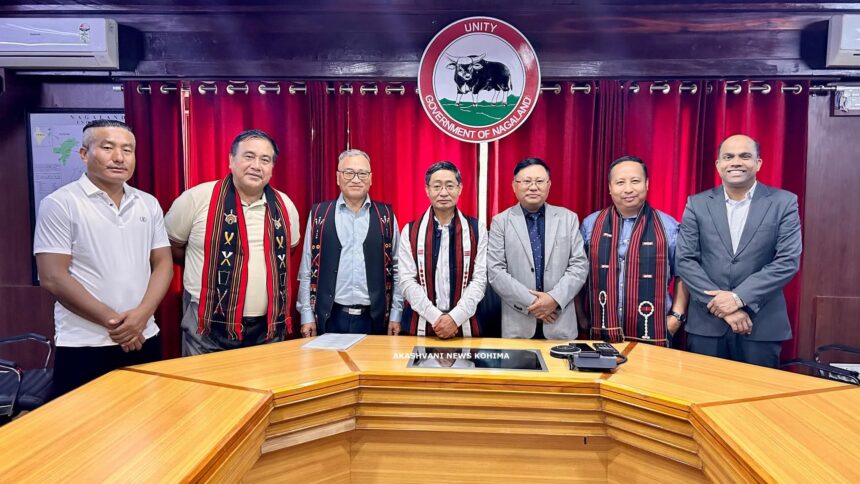Nagaland Government to Review 48-Year-Old Job Reservation Policy on August 6: Five Tribes Committee Halts Protest
KOHIMA — The long-standing demand for a review of Nagaland’s job reservation policy is set to reach a crucial point as the state Cabinet prepares to deliberate on the issue on August 6, 2025. The announcement follows a high-level meeting held today between top state officials and the Five Tribes Committee on Review of Reservation Policy (CoRRP).
The meeting, convened at the Civil Secretariat in Kohima, was chaired by newly appointed Chief Secretary Sentiyanger Imchen and attended by other senior officials. CoRRP Convenor Er. Tesinlo Semy, speaking to media after the meeting, confirmed that the Cabinet would take up the matter on August 6. In response, the committee has decided to temporarily suspend its third phase of agitation, which was set to begin on August 5.
“The government has assured us that a commission with defined terms of reference will be constituted within two weeks. In anticipation of the Cabinet’s decision, we are keeping our agitation on hold,” said Semy.
Background of the Reservation Controversy
At the heart of the protest lies a demand to review or abolish a job reservation policy that has remained in place since January 11, 1977. Introduced under Article 16(4) of the Indian Constitution, the policy currently reserves 25% of vacancies in non-technical, non-gazetted state government posts for seven tribes classified as “backward.”
Although originally intended to last for ten years, the policy has been in effect for 48 years without any formal review. The Five Tribes Committee—comprising the Angami, Ao, Sumi, Lotha, and Rengma tribes—argues that the policy has now become discriminatory and outdated, leaving their communities underrepresented in both the reserved and general categories.
The committee is calling for either the complete removal of the reservation system or exclusive allocation of unreserved posts to their tribes to address the imbalance.
Key Timeline of Developments
- September 20, 2024: The committee submits a formal memorandum to the state government.
- April 26, 2025: A 30-day ultimatum is issued following lack of government response.
- May 29, 2025: CoRRP organizes protest rallies across various districts.
- June 3, 2025: A high-level meeting with Deputy Chief Minister Yanthungo Patton ends with a verbal promise to constitute a commission and take the matter to the Cabinet.
- June 17, 2025: The deadline passes without progress; CoRRP prepares for Phase 2 of protests.
- July 2, 2025: Chief Minister Neiphiu Rio urges patience and indicates that a comprehensive review may be better aligned with the 2027 national census. He also says civil society may be excluded from the review body if requested.
- July 20, 2025: A sit-in protest is held outside the Civil Secretariat in Kohima.
- August 4, 2025: Following a meeting with the Chief Secretary, CoRRP decides to postpone its third phase of agitation pending the outcome of the Cabinet discussion.
Government’s Response and Next Steps
Chief Minister Neiphiu Rio has repeatedly emphasized the complexity of the issue and the need for a balanced and data-driven solution. The government has now committed to framing terms of reference for a new commission and formally taking up the matter in the upcoming Cabinet meeting.
The August 6 meeting is now seen as a pivotal moment that could determine the future of Nagaland’s public employment structure. While defenders of the current policy argue it continues to serve marginalized tribes, CoRRP insists the outdated model fosters inequity and tribal exclusion.
Conclusion
As tensions ease temporarily, the spotlight is now on the state Cabinet. The decision they take on August 6 could have long-term implications not only for the reservation system but also for inter-tribal equity and state governance.
Dimapur Today will continue to provide updates on this critical issue as developments unfold.





